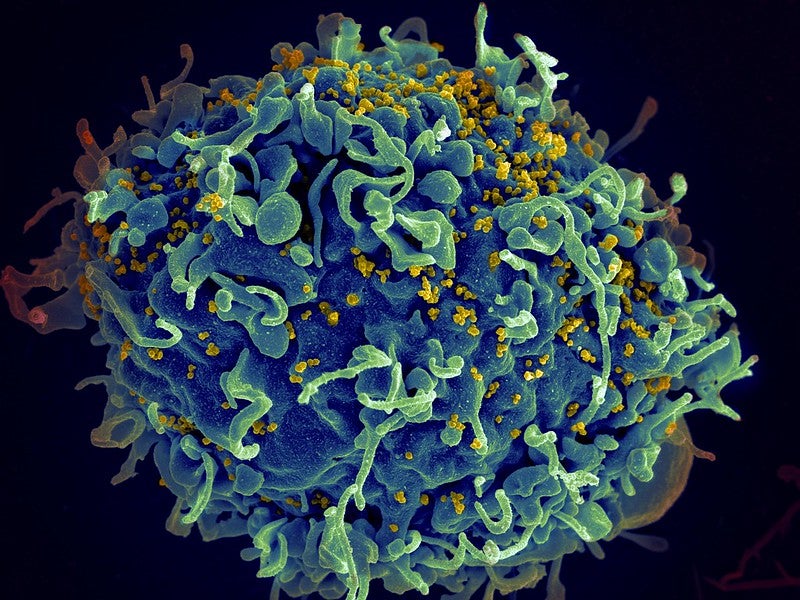
ViiV Healthcare has reported that its long-acting, injectable cabotegravir given every two months showed superior efficacy over Gilead Sciences‘ daily oral emtricitabine/tenofovir disoproxil fumarate (FTC/TDF) tablets to prevent HIV.
These results are from the randomised, multi-centre, double-blind Phase IIb/III HPTN 083 clinical trial, which is testing the safety and efficacy of long-acting, injectable cabotegravir for HIV pre-exposure prophylaxis (PrEP).
The HPTN 083 study population involved HIV-negative men and transgender women who have sex with men.
The blinded phase of the trial was stopped early in May this year and an independent Data and Safety Monitoring Board review found the long-acting medication to be highly effective in preventing HIV.
Final analysis revealed that long-acting cabotegravir was 66% more effective in preventing the disease versus daily oral FTC/TDF tablets.
In May, the company reported that the trial met its primary objective of non-inferiority when compared to daily pills.
How well do you really know your competitors?
Access the most comprehensive Company Profiles on the market, powered by GlobalData. Save hours of research. Gain competitive edge.

Thank you!
Your download email will arrive shortly
Not ready to buy yet? Download a free sample
We are confident about the unique quality of our Company Profiles. However, we want you to make the most beneficial decision for your business, so we offer a free sample that you can download by submitting the below form
By GlobalDataViiV Healthcare Research & Development head Kimberly Smith said: “These data are truly ground-breaking, demonstrating that long-acting injectable cabotegravir dosed every two months is superior to daily oral FTC/TDF at preventing HIV in at-risk men and transgender women who have sex with men.
“This advancement has the potential to be a game-changer for HIV prevention, offering an option with very high rates of effectiveness and the convenience of reduced dosing from daily to just six times per year.”
Both treatments were observed to be well-tolerated throughout the study. The majority of the adverse events were mild or moderate and said to be balanced between the treatment arms.
The most common adverse events in the cabotegravir arm were injection site reactions, pyrexia, and hypertension, while nausea was more common in patients treated with FTC/TDF.
The US National Institute of Allergy and Infectious Diseases (NIAID) and ViiV jointly funded the trial.
A separate trial, named HPTN 084, is currently assessing the safety and efficacy of long-acting cabotegravir for HIV prevention in sexually active women. More than 3,000 participants have been enrolled for HPTN 084 across seven African countries.






